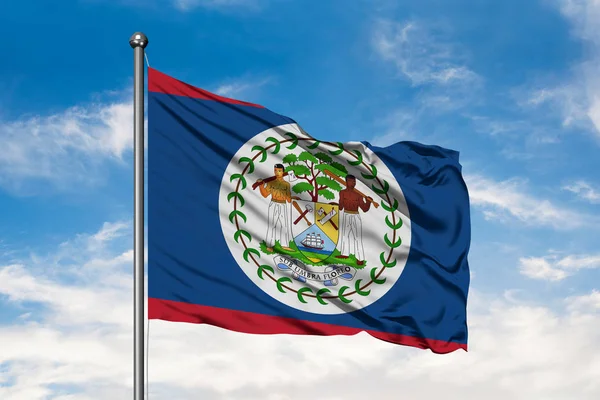
Belize’s Fourth Round Mutual Evaluation: Progress, Challenges, and the Road Ahead
By Leon Dawson, February 10, 2025

Belize has made commendable strides in strengthening its anti-money laundering (AML) and counter-terrorist financing (CFT) framework, as reflected in the Fourth Round Mutual Evaluation Report (MER) of Belize (CFATF, 2025). Compared to its Third Round MER (2011), the country has significantly improved its legal and institutional frameworks, aligning more closely with FATF’s 40 Recommendations.
However, while technical compliance has increased, effectiveness remains a challenge in areas such as financial intelligence utilization, AML/CFT supervision, and money laundering (ML) prosecutions. As Belize looks toward the Fifth Round of Evaluation, the country must address existing gaps and anticipate emerging financial crime risks to strengthen its position in the global financial landscape.
Progress Since the Third Round Evaluation
During the Third Round Mutual Evaluation (2011), Belize was placed under Enhanced Follow-Up due to its low compliance ratings with FATF standards. At the time, the country struggled with:
- Weak AML/CFT laws that lacked enforcement mechanisms.
- Limited beneficial ownership (BO) transparency, allowing illicit actors to exploit Belize’s financial system.
- Inadequate financial intelligence and enforcement, leading to low conviction rates for ML offenses.
Since then, Belize has made substantial progress in addressing these issues:
1. Strengthened Legal and Institutional Frameworks
Belize has revised key legislation, including the Money Laundering Terrorist Prevention Act (MLTPA) and the Belize Companies Act, to enhance compliance with FATF Recommendations. These reforms have improved customer due diligence (CDD) requirements, enhanced due diligence (EDD) measures, and targeted financial sanctions (TFS) implementation.
2. Improved Beneficial Ownership Transparency
The 2022 amendments to Belize’s corporate laws require companies to submit BO information through the Online Business Registry System (OBRS). These changes are critical in preventing shell company abuse and ensuring law enforcement agencies have timely access to accurate ownership information.
3. Increased International Cooperation
According to the Fourth Round MER, Belize has processed and responded to over 250 mutual legal assistance (MLA) requests in the review period, demonstrating a commitment to global financial integrity. Moreover, authorities have proactively worked with international partners to improve information-sharing on illicit financial flows.
Despite these gains, some critical weaknesses remain. Belize still struggles with limited ML prosecutions, low asset recovery rates, and inconsistent AML/CFT supervision across financial and non-financial sectors.
Three Strategic Recommendations for the Fifth-Round Evaluation
As Belize prepares for future evaluations, policymakers should go beyond compliance and focus on strengthening implementation and enforcement. The following strategic recommendations will help enhance Belize’s effectiveness in the fight against financial crime:
1. Expand the Use of Financial Intelligence in Prosecutions
While Belize’s Financial Intelligence Unit (FIU) has improved in identifying suspicious transactions, the prosecution rate for ML cases remains low. Between 2018 and 2023, there were no successful ML convictions, despite Belize being a known transit hub for drug trafficking and illicit financial flows.
To bridge this gap, authorities must:
- Enhance data analytics capabilities by integrating AI-driven financial intelligence tools to detect complex ML schemes.
- Train prosecutors and law enforcement on forensic accounting and ML investigation techniques to strengthen evidence gathering.
- Adopt non-conviction-based forfeiture laws to recover illicit assets even when ML prosecutions face legal hurdles.
2. Strengthen AML/CFT Supervision for DNFBPs
While banks and credit unions are subject to robust AML/CFT supervision, designated non-financial businesses and professions (DNFBPs)—such as registered agents, real estate agents, attorneys, and company service providers—remain a weak link.
- Real estate transactions, in particular, pose a high risk for ML, as criminals can use luxury properties to launder illicit funds.
- Casinos and money transfer businesses also present vulnerabilities, yet AML supervision remains inconsistent.
To address these risks, Belize should:
- Mandate stricter compliance reporting for DNFBPs, requiring them to submit risk-based AML assessments to regulatory authorities.
- Increase on-site inspections and enforcement actions against non-compliant businesses.
- Expand financial penalties for DNFBPs that fail to meet AML/CFT obligations.
3. Modernize Cross-Border Currency Controls
Belize’s geographical location makes it vulnerable to transnational financial crimes, particularly drug trafficking and tax evasion. While the Customs and Excise Department (CED) has seized illicit cash at border crossings, enforcement remains sporadic and inadequate.
- Undeclared cross-border currency movements are not being tracked systematically, and large sums of illicit cash continue to move undetected.
- Smuggling networks exploit weak border controls to launder proceeds of drug trafficking through Belize’s financial system.
To modernize cross-border financial enforcement, Belize needs to:
- Utilize trade valuation analytic tools in the customs department to detect instances of trade misinvoicing.
- Establish multi-agency teams to identify, investigate and prosecute trade misinvoicing cases.
- Adopt digital currency declaration systems to improve real-time tracking of cross-border cash movements.
- Equip border security with K-9 units (trained detection dogs) and AI-driven scanning technology to detect bulk cash smuggling.
- Strengthen cooperation with Mexico, Guatemala, and U.S. law enforcement to dismantle transnational ML networks.
Conclusion
Belize’s Fourth Round Mutual Evaluation demonstrates commendable measurable progress, but the country must do more to improve ML prosecutions, strengthen DNFBPs supervision, and modernize cross-border currency controls.
Through adopting innovative financial intelligence tools, enhancing AML enforcement in high-risk sectors, and modernizing border security measures, Belize can empower its leadership in AML/CFT compliance ahead of its Fifth Round Evaluation.
The global financial landscape is evolving rapidly, and Belize must ensure its AML/CFT measures evolve accordingly. Strengthening prosecution, supervision, and enforcement mechanisms will not only improve FATF compliance ratings but also safeguard Belize’s financial system from abuse in the years to come.
